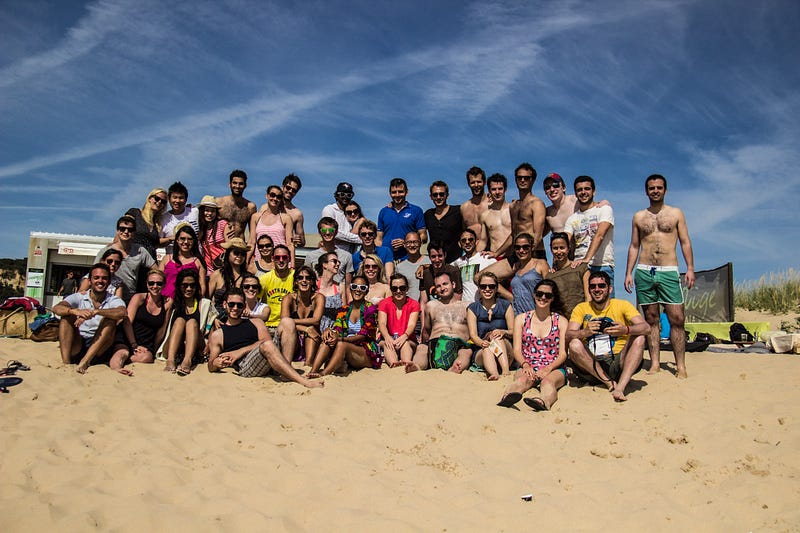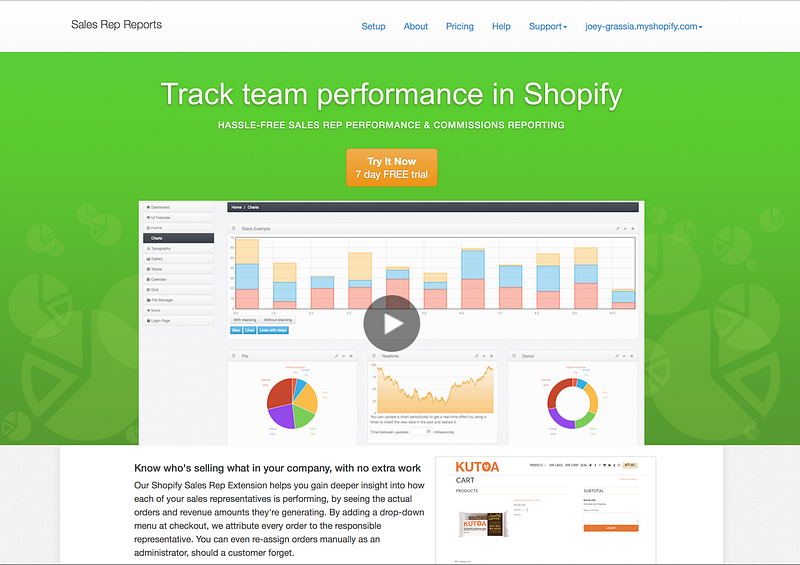The Complete Beginner’s Guide to Passive Income

It may not seem like an inherently “SuperHuman” skill to earn money while you sleep. However, it's important to understand that “passive income” – or the ability to completely detach your work output from your earnings or income – represents mastery over both your finances and your time. If you look at it this way, then understanding and “hacking” the process of earning a living becomes one of the most important and impressive of SuperHuman skills.
It is for this reason that I began exploring passive income in the early 2000's, along about the time I read The Four Hour Work Week. It took me nearly 10 years, dozens of trials, and a whole lot of learning before I mastered the system and gained full control over my financial future. For this reason, I'm very excited to share a post I originally wrote for Medium.com about a year ago. In my opinion, it's a pretty in-depth explanation of passive income, applicable to both novices (“wait, what's ‘passive income' mean?”) to advanced practitioners. Most importantly, it gives you a number of concrete examples of my own passive income endeavors, which hopefully can spur your creativity and motivate you to get out there and do something with it. I've added a few notes to update it, since a lot has changed and evolved in the last year.
It's a very long read – but has been deemed well worth it by the Medium community.
And so, without further adieu…
—
The Complete Beginner’s Guide To Passive Income
Or “How I Make More Money By Not Working Than I Did By Working”
Since graduating from business school, a lot of people have begun asking me what I’m doing, or if I’ve found a job. The answer is almost always “working a few hours a week on some side projects until re-launching my startup.” Whereas this may sound like an unfortunate or undesirable outcome, it’s not so bad… My gross income now — without really “working” on anything — is higher than it was when I was working 80 hour weeks running a $3M/year eCommerce company. It’s not glamorous, but it’s all part of a strategy. Let me explain…
Passive Income: What it is and Why You Want It
Like many, I was first really turned on to the idea of passive income by Tim Ferriss. In The Four Hour Work Week, he describes the system he developed with BrainQuicken, where the marketing, shipping, reordering, banking, and even customer service of the company was on complete auto-pilot. I found this idea intoxicating. The idea that Tim could travel the world learning to tango and staying on private islands while money just accumulated in his bank account seemed like some strange fiction — surely, this isn’t how people actually live, is it?
Well, no. That type of lifestyle is a pipe dream, and for good reason. Setting up passive income takes work, maintenance, and constant reinvention. But we’ll get to that. The more pertinent question is why.
The point of passive income is to liberate your time for more fruitful endeavors —whatever those may be.
Most people who set up passive income don’t do it so they can lay on a beach all day, or even so they can spend their time learning a third or fourth language (ok, maybe I’m doing that), or living on private islands. No, the point of passive income is to liberate your time for more fruitful endeavors —whatever those may be. If you have the ambition and gall to get out of the “9 to 5 game” and set up passive income, chances are you won’t be happy with sitting on your butt or traveling year round. You’ll want to do something with meaning and purpose. For Tim, that was learning and writing a series of books, which he’s truly passionate about. For me, that’s traveling, learning, and working on startups that are “high risk” or have a long road to generating revenue. For you, maybe it’s spending time with your kids and not having to take overtime when it’s offered to you. In any case, my goal is to spend as little time as possible to cover my basic needs; if I want to spend more time to make more money, that’s always an option — but I want it to be an option, not a necessity. As of right now, this is working out brilliantly. Because I have passive income streams set up, I don’t have to worry about generating sales immediately, raising funds from investors so that I can eat, etc. But I didn’t always have passive income — in fact, it took a lot of trial and error and a lot of learning (do yourself a favor and read Rich Dad Poor Dad — iBooks Link Here) before I had anything worth mentioning.

Passive income allowed me to take 2 years off to get an MBA, living in 3 countries and traveling to 21 with some amazing people
My Governing Laws of Passive Income
I’m not sure how other people look at passive income, though I’m also not sure I’ve innovated anything here. My thinking on the matter is a hybrid between 4HWW, RDPD, and a general understanding of business strategy and economics, reinforced by my time at Berkeley and INSEAD.
Let’s start from the basics and lay down some general laws about passive income.
Money is made where value is created and exchanged,
where “value” is defined as some benefit that people are willing to pay to receive. Seems really basic, right? But most people don’t seem to get this basic step. Any time anyone makes money in any way, value has been created and exchanged. In a way, we are all value-creating assets. It’s how we make money. Nothing wrong with that. The problem is how most of us create value.
Nearly every “9 to 5″ worker (nothing against them) is a service worker. The definition of a service is a commodity where the value is created and consumed at the same time —think massages, for example. They create value — inputting purchase orders, serving customers, managing employees, etc — for a company or employer. The employer then consumes these services simultaneously. (An interesting side note: I recently realized that by definition, a company is only going to hire you if they can sell the value you create for more than it costs them to obtain. In a way, this means that any time you’re employed, you’re getting a raw deal). The books are pleasantly organized, customers served, teams managed, etc. The problem (in my mind) is that this is hugely time intensive and easily capped. Income = Time x Value, where Time is a finite resource limited to 24 hours a day (or, more realistically, 12).The way most people address this is to change the second variable. They get a law degree, MBA, or PhD, making their time worth more money. This works swell… but it’s still limited. At some point, you’re that lawyer making $550/hr, but your income potential is capped, as willingness to pay more is at it’s highest, and no new time can be created. What to do?
Value that can only be consumed once isn’t very valuable at all
You are valuable. Your time, your work, knowledge, experience, and output are all valuable. In fact, your employer (or your customers, if you’re an entrepreneur), probably pay a lot of money to rent these things from you. The problem is, whether you’re a doctor, a lawyer, an artist, an engineer, or even a baker, the value you create is consumed once — then it’s gone. You can only sell a loaf of bread once. You can only sell each open heart surgery to one client. The value trades hands, and now it belongs to the customer — you get paid once.
As we’ll see, one of the key tenets to passive income is to break this relationship; to create value that can be amortized and repeatedly sold, rented, or otherwise traded again and again and again.
Value has to originate from people, but it doesn’t have to be delivered by them
At some point in every value chain, value has to be created by a real human. No argument there. However, who says that a human has to deliver that value? Some very smart humans put in the work to create Google, but for the most part, they don’t have to do any work to deliver value to you, whether it’s search results or GMail or Maps. Your landlord put in a lot of work to afford the apartment you live in, to remodel it, and even to find you as a tenant. But now, he doesn’t have to do any work to deliver value to you: you wake up every morning in the apartment whether or not he works.
Passive income is defined as income-generating activity that is independent or loosely dependent on time commitment. Just so we’re on the same page, here, there’s no such thing as making money without creating value (I wish), and creating value takes time and effort. So, you are technically transacting time for money, in a way. But passive income is where we separate or at least alienate the proportional relationship between time spent and money made. It’s where there is no longer a fixed ratio, and if there is, it’s not a 1:1 ratio, but more like a 10 or 20:1 ratio of man-hours-worth-of-time to actual time. As another side note, knowing how much your time is worth both to you and on the open market is a valuable piece of information for guaging how effective your passive income activities need to be.
The Three Types of Value Exchange
Fortunately, there are only so many ways to skin a cat, er, deliver value. If you look at just about all economic activity, you’ll see that it breaks down into a few categories.
Selling Value
The term “selling” probably doesn’t need much explanation, but it’s where value is transfered one time in exchange for money. Heart surgery, baguettes, and designer jeans are all ways to sell value. This one would probably the least optimal of all, at least for passive income, if it weren’t for an exception. This is because once you sell a normal commodity or service, you can’t re-sell it. Here’s the exception to this: software or digital goods can be duplicated with a very low marginal cost(now that we don’t use CDs, you can duplicate it with a cost of $0.00), and therefore, technically can be “sold” advantageously over and over and over again. This is why Microsoft grew to such a profitable company, and why I love selling digital goods.
Renting Value
Renting value is exactly what you do when you go to work every day. This is a great way to adhere to our rule against one-time consumption, although you can only rent something to one person at a time (drawback). By renting something, I can generally avoid degradation of the value, or at least lessen it. By renting you a house, I’m charging you for the value of the shelter and comfort, and in fact incur pretty minimal decrease in value as your usage of the house causes wear and tear. When you’re done renting the house, there’s still plenty of value left to rent out, and the fact that you’ve enjoyed a year or two of value doesn’t much matter to the next willing consumer.
Creating secondary value — generally advertising potential — and then selling or renting that
 Note that the mechanics of selling and renting here are the exact same, the difference is that with secondary value, we’re going to create another form of value, and we may or may not charge to exchange both forms of value.
Note that the mechanics of selling and renting here are the exact same, the difference is that with secondary value, we’re going to create another form of value, and we may or may not charge to exchange both forms of value.
That’s confusing, so let’s take a simple example. I create a free newspaper, and give away the value (information, entertainment) to people at no charge. By doing so, I’ve created a powerful form of secondary value: the attention of my readers. I then rent this value out to advertisers, who consume it regularly. If an advertiser leaves and I find a new one, the fact that the other advertiser consumed value before is of little or no concern to the new consumer.
That’s it. If you can think of another way of delivering value, I’d be interested to hear it. Governments create value and deliver it in this way (selling you the services of the FDA in exchange for taxes, for example). There’s no “magical” fourth revenue model.
That’s it.
But don’t worry, it works to our advantage.
Engineering Passive Income & Examples
Knowing that there are only so many ways to create value, we simply have to look at the cost/benefit of each one and be selective about how value is created.
Plain and simple, we have to create or buy valuable assets, preferably ones that deliver their value automatically.
Instead of working in the service framework, passive income necessitates that we build (or otherwise acquire) something that inherently contains value, which can then be easily and repeatedly transferred to others with little or no work. Plain and simple, we have to create or buy valuable assets, preferably ones that deliver their value automatically. There are a lot of ways to do this, but they all fall into the 3 categories above, and realistically, a lot of them look like different flavors of the same thing.
Think about the value you rent out or own . Then put it into something that can be sold or rented more passively.
I’m somewhat embarassingly reminded of Harry Potter and the concept of “Horcruxes” here, in that the goal is to find a piece of your value, and impart it into an inanimate object or product, Voldemort Style (did I really just make a Harry Potter reference?) Anyways, whatever. If you want passive income, you have to think about the value you rent out or own. Or, you need to buy something valuable that other people would like to use (I love the idea of a 3D Printer). Then put it into something that can be sold or rented more passively. Maybe you have a car that sits in the driveway, or a vacation home that is empty half the time. Maybe you just have some funny jokes you could put into a YouTube video and run ads on. At some point, you have to “transfer” the value into something that can work for you — that something is an asset.
Let’s look at some different assets that can be harnessed to make money, and understand how they work.
Digital Goods, Software, Information Products, Stock Photography, Music Loops, etc.
This encompasses everything from eBooks to stock images and even Udemy courses. The idea here is to create a digital good that has value. Why digital? Well, if you’re creating really unique hand-made socks, you can’t just duplicate them and resell them. Furthermore, you have to pack and ship each pair. Both of these things mean that there’s a fixed ratio of labor to income, and we’ve already discussed why that’s not ideal. Digital goods can be duplicated, and we can engineer systems (or use online marketplaces) to deliver them automatically. Awesome.
Side note: Patents, if you’re smart enough to create one (I’m not), are also great. They require a bit more work and legal hoops to set up, but if a company like Samsung is going to license your patent in one of their products, that is a “set it and forget it” income stream for as long as they need the patent.

By renting out my own house in California, I was able to live in this French castle-looking-thing with some friends during Business School. Not bad.
Blogs, Websites, YouTube Channels, and other informative materials
This is separated intentionally from “information products,” because here I’m referring specifically to secondary value creation. If you can write a popular blog and get people reading it, you can sell ads. Alternatively, if you write a niche blog about vegetarian, gluten-free cat food, you can use special affiliate links to different websites, and get paid when people buy through those links. There’s lots of great blogs making tons of money doing these two things (I know of people making millions referring credit card signups), but please note that unless someone is writing and distributing the content for you, this is not passive income. It takes a lot of work to drive traffic. Some of the smarter people I know doing this have hired content writers and set up a bunch of sites, but they invest a TON of time on SEO, finding the right topics, etc.
Selling actual products
Like we said above, there’s nothing passive about this, but if you can create another type of asset — a system for selling products — then it is. One example is to write a book, and use Amazon Fulfillment Services to automatically print and ship it every time you sell a copy, depositing the money in your account. Another example is Tim Ferriss, who hired overseas assistants to handle everything at BrainQuicken, from the marketing to the reordering. With drop-shipping (having the manufacturer ship directly to your customer), this has become easier, but you should know that it’s still a good bit of human labor to advertise, handle customer service, etc. But, it’s a good option, and you can experiment with automation and delegation as you go along. If you want to know more about this, read The Four Hour Work Week already!
Real Estate and Physical Assets
Though it requires a huge up-front investment (well, at least 20%), real estate is awesome, because it’s (usually) pretty stable, and it’s a triple-whammy: you make money by leveraging a bank’s money, you can rent it out with almost no work at all day-to-day, and the value of the underlying asset INCREASES. This is why so many people flock to AirBNB to rent out their apartments when they’re going on vacation, too. It’s pretty passive, you don’t have to own the asset, and you just hand over keys and hire a cleaner before/after. The value of your apartment is untouched. By contrast, imagine buying a plane and renting it out to people for tours — you pay tons of money to maintain it, and after 20 years, it’s value is almost nothing. The exception is if you can manage depreciation and somewhat automate the value-delivery. If you have an expensive tool (like a 3D printer) and charge people to come over to your house and print things on your 3D printer, it’s pretty passive for you to answer emails and open the door, so I give it a “Semi to yes” for passivity.
Real estate has another perk: Tax law in the US (and most countries) has been written by landowners. There are some ridiculous loopholes, like the ability to deduct expenses (and maybe even some interest) as a cost of doing business. Also, you can sell the property and buy another one without paying taxes. I won’t go into detail here, but Real Estate is my favorite form of passive income, and it makes up over 50% of my portfolio. See the next section for a breakdown.
Traditional Investments
Stocks and bonds and all that good stuff can be passive income, too, but with high investment requirements up front (not unlike real estate). If they’re set up to pay dividends, this is a great passive income generator, because it’s low risk and can hedge out some of the risk you introduce in other endeavors.

Here is a little chart of some different ways people make money. Look at the difference between active, semi-passive, and passive income.
Diversification and My Passive Income Mix
As we’ll discuss, passive income opportunities are usually limited time only, and honestly, over half of what you try won’t work. Diversification is your friend. Having many sources of income — at least 7 including your “day job” — is an important hedging strategy. Personally, I have been working at it for a long time, and I’ve had many failures in trying to build my portfolio. I’ve done a few apps for BlackBerry (come on, it was 2009), contemplated writing a book, started a bunch of blogs and forums, and joined countless affiliate programs. Here are the ones that are currently working right now.
Real Estate
I rent out a 3 bedroom townhouse I bought back in 2009. My tenants are a the most lovely, most responsible couple who themselves own a home in another state. They take great care of the house, automatically send checks from their bank, and have only had 1 or 2 problems in the last 2 years (the neighbor’s house caught on fire). They’re awesome, and I’m so thankful to have them.
Note: almost all of the money made here goes into mortgage, property tax, insurance, and homeowners’ insurance, but it builds equity value, and there’s still a few bucks left at the end for spendable income.
Traditional Investments
For someone my age, I have an extremely low risk portfolio of mutual funds, foreign currency, and bonds. Nothing exciting, but it pays some nice dividends and beats the hell out of keeping money in a savings account. This is a way for me to hedge against the risk I incur by angel investing in startups.
Structured Payments for Sold Assets
When I sold my company, the buyers were both thrilled and surprised that I was willing to accept such a large portion of the proceeds as structure payments. To this day, I still receive a monthly check, including interest, for the sale of that company. I created the value a long time ago, added a little more value by allowing payment over time, and now that value is paid on a schedule.
Information Products
Well, my book project didn’t generate the interest I would have liked to, but another product did. I now have a course on Udemy, and though it’s very early, it already seems that this will become a major part of my passive income strategy in 2014 (October 2014 Update: It is now a bigger income source than all other sources — combined). You can check it out here.
Digital Goods (Software)
I’m not a software developer, and my early software projects (Blackberry Apps) failed because after paying a developer to build the product, I didn’t anticipate needing to update it regularly or provide support for it. Today, however, I have a partner who helps me upgrade our software once a year, and provides support if there are any issues (pretty rare). This year, we released our third module for Magento (they range from $49-149), and we’re currently building our first ever Shopify module (Update: Check it out here), which we’ll be licensing out for $5-20 a month. (Another update: My recently-published bestselling book is also a form of digital good, and recently has become a significant source of passive income.)

The Magento Software my partner and I sell is 80-90% passive income.
Affiliate Sales
I make a little bit of money off of referring people to services I truly believe in. I never recommend things I don’t personally use, but if I’m going to refer friends to Shopify, Credit Card Processors, or Udemy courses besides my own, I have no shame making a couple bucks off it. In the case of Shopify, they give me 20% of what my clients spend each month, which is why if you want to set up a Shopify store, use this link and I’ll help you at no charge! I really like recurring passive income most of all.
Criticisms
As with any methodology for getting more for less, there will be critics (read: people too afraid to challenge their notions of what life is and can be). I’ve probably pre-emptively covered a lot of those concerns, but let me address a few grumblings that are likely to come up.
Passive income isn’t passive, you have to work for it
No shit. It’s about having a finite ratio of work to income. I can put 100 hours of work into an information product and sell it 10,000 times for $100 each. Find me somewhere else I can make $10,000 an hour, remembering that brain surgeons and actors spent literally tens of thousands of hours developing their skill set, and I’ll be happy to switch to that. I’ll then work an hour a month and forget about passive income.
Passive income means doing things you hate for money, just like normal work
Not really. I love my speed reading course, I’m passion about it. I love working on apps to help small businesses kick more ass. Sure, it’s not as sexy as running a full time startup with dozens of employees, but that’s not the point. The point is to make enough money to be able to take risks and do what I want.
Don’t you get bored if you don’t have to work?
Yeah, actually, this is the best criticism to date. I do get bored, and sometimes I lose motivation. That’s why passive income can’t be a replacement for active income. I’m still looking to create a full-time role for myself by launching or joining a kick-ass startup.
Most opportunities will disappear within a year or two, competition will come in and kill you if you’re not vigilant
Yep. That’s why we come out with a new version of our software every year or two. That’s why I’ll likely improve my Udemy course in a year or two. That’s why I have to re-sign a lease on my house every 2 years. And it’s why I’m always creating new strategies and new income channels. The fact is, even with this research and trial/error process, I still have more free time than most people I know, and that’s free time I’m using to patiently seek out an awesome opportunity doing something I love.
You can’t build a successful company or a loyal following without hard work
Who cares? I don’t care one bit about building a “successful company” with most of my passive projects. That’s for my active projects. For passive income, I can build products and automated services that are useful enough that people want to buy and use them. My Magento modules and Udemy course have 5 star ratings. I could probably sell 2x as many copies of each if I made it my full time job — but it’s low value activity. I can have more fun, get more fulfillment, and make more money out of other passive activities, and that’s why I don’t care that my passive businesses are small and nichey.

Not all passive ideas work. My first book attempt didn’t generate as much interest as I’d hoped — but I learned a lot, which prepared me to put out my #1 bestselling book a year later.
I can’t do this, because I don’t have value that’s sellable
Bullshit. If you have a job, you have marketable value. Maybe it’s low value, if you’re flipping burgers, but you can create value somehow. I don’t care if you have to start out by re-renting the parking spot in front of your apartment, you can find, create, or buy something valuable worth repeatedly selling or renting, or you’re not thinking hard enough. Here’s a free idea: A lot of people want to play with 3D printers. Get 5 of your friends together and buy one. Put up a website and a listing in the local paper. Charge $50/h for printing. Set up a system that verifies if payment has been submitted and then automatically prints out the files that have been emailed to you. Split the earnings with your friends. Boom. You have passive income.
You can’t make enough money to live a good lifestyle
That depends what you call a “good” lifestyle. Can I rent yachts and get bottle service every weekend? No way. Can I travel a good bit and live in central Tel Aviv with money to spare? Definitely. If you want to make boatloads of money, you’re going to need a combination, but if you want time to pursue your passions and have a moderate amount of fun, you can definitely sustain yourself with passive income.
This isn’t for everybody
No argument here. It’s not for everybody. Just like you can’t imagine taking risks or finding the energy to be creative after you get home from work, I can’t imagine trading 40% of my waking life for money, leaving me with no time to actually spend the money I made. Even when building startups, I believe that I’m trading time for asset creation (which is why I still receive checks every month from my last startup). Nothing against you if 9-5 is how you choose to live, and in fact, I’m very happy for you if it makes you happy. Just know that you have a choice!
Conclusion
This article is long enough, and I think it’s time to end… but I’m also considering writing a more in-depth ebook or teaching a Udemy course on the matter. After all, it’s another stream of passive income. Let me know what you think.
JL


















4 Comments
Thanks, I learned a lot of interesting things in past episodes.
loved th heart and the depth of the conversation. The way that Dr. Metivier shared from his enormous experience and insights was just amazing. Thank you Jonathan for doing this podcast!! 🙂
Great interview with Dr. Greg Wells! He mentioned a doctor from Colorado around the 42:30 point of the podcast, discussing turmeric and black pepper. I couldn’t make out the doctor’s name. Can you provide me with his full name and maybe his website or contact info. Interested in his products.
Thanks,
Rob
I am new here, and learning really fast.
Thank you.